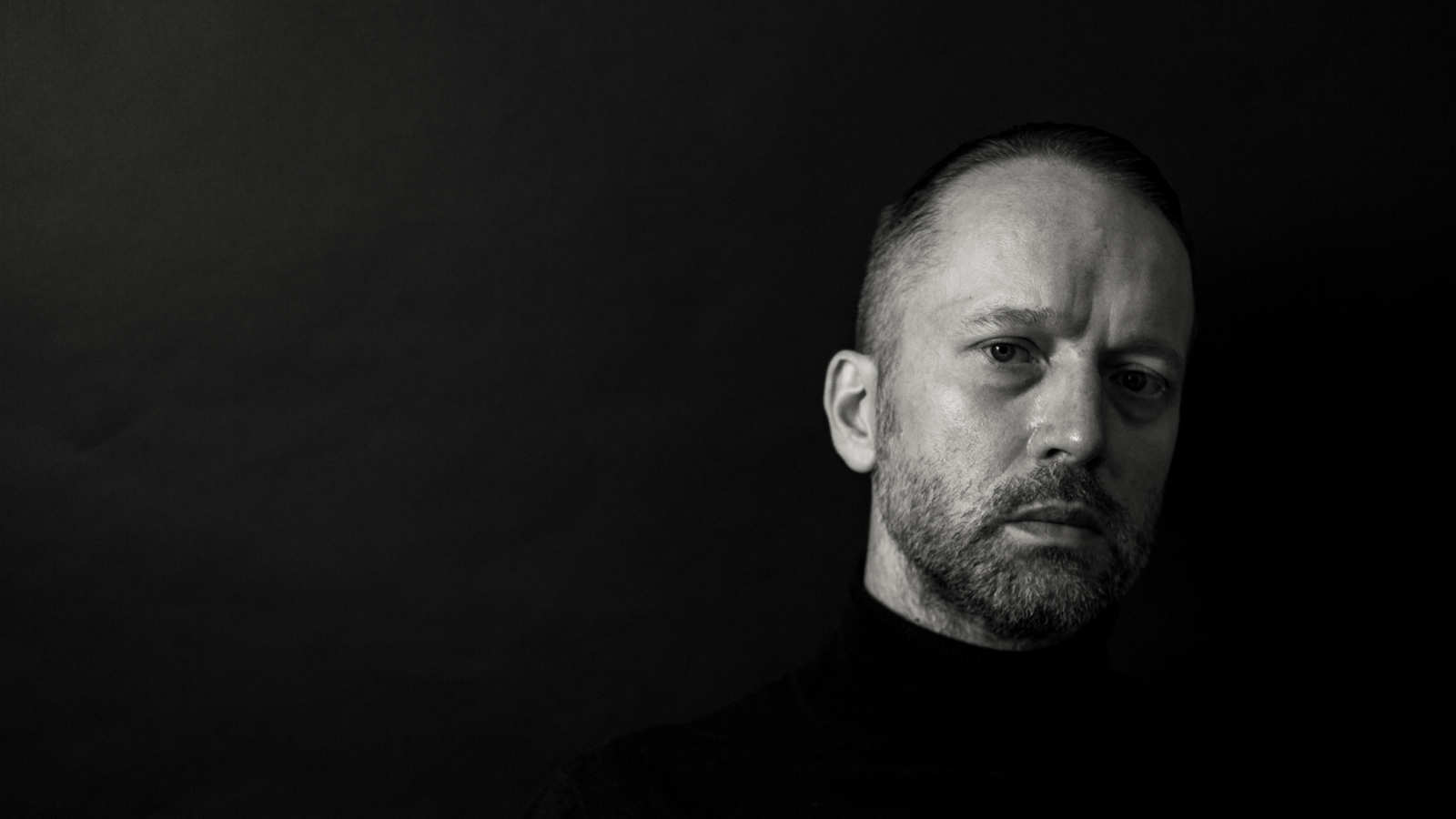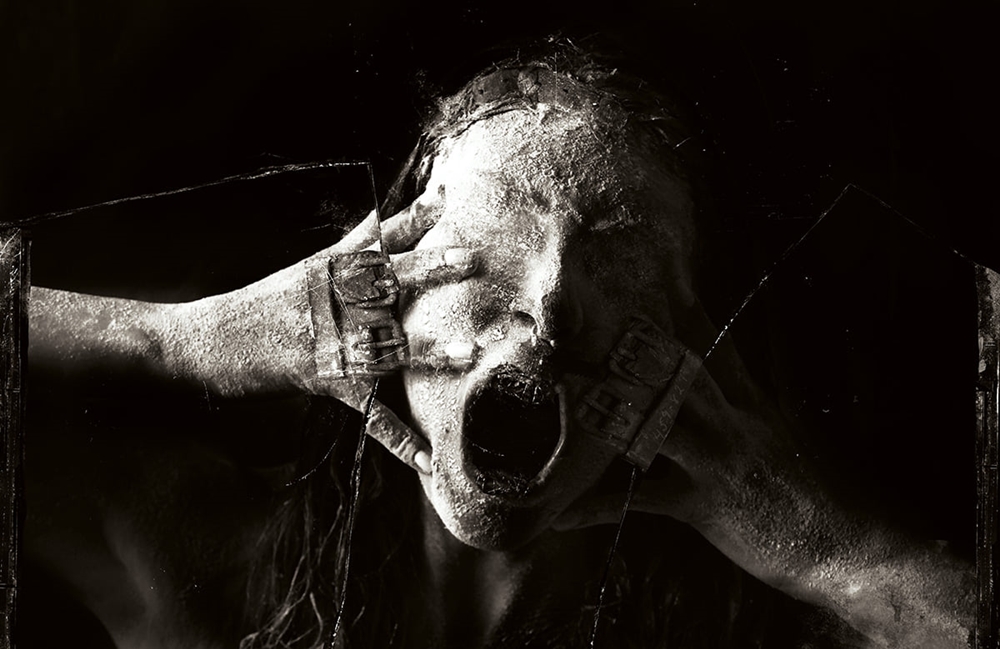With “Children of Bushido”, Ryoji Shinomoto fulfills a lifelong dream, launching his first solo and covers album, paying tribute to Children of Bodom. In honor of the late Alexi Laiho, the album will be released on what would have been his 46th birthday, April 8, 2025, via Napalm Records. “Children of Bushido” seamlessly blends the worlds of western metal and traditional Japanese instrumentation, two seemingly different worlds united in powerful and unmistakable harmony.
We’ve had the pleasure to chat with Ryoji about his tribute to Children of Bodom, guilty pleasures, rituals for creativity, and so many more.
What was your first experience with music, and what inspired you to start playing?
When I was 2 or 3 years old, I was drawn to anime and folk music, but I think I was more captivated by the anime itself rather than the music. The first time I truly felt chills from music was when I heard Joe Hisaishi’s compositions for Ghibli films and songs by Japanese pop singer Yumi Matsutoya during my kindergarten years.
I didn’t understand why, but the music moved me deeply. The first time I felt a strong urge to play music was because of GLAY, a massively popular J-rock band in Japan at the time. However, my true introduction to rock was through KISS. My father owned a hair salon, and I saw a magazine with KISS on the cover, which caught my attention. I quickly got my hands on a VHS tape and CD of KISS, and from that moment, I felt like my life was set.
By then, I was already learning classical guitar and often played my father’s Greco ES-335. Although KISS was from an older generation for me, I was completely mesmerized by them, just like the fans in the ’70s.
When did you first listen to Children of Bodom, and what drew you to their music?
I think I was around 14 or 15 when I first came across an interview and a short guitar phrase transcription in a Japanese guitar magazine. That got me curious, so I listened to them—probably their fourth album. Before hearing them, I had already practiced their guitar phrases from sheet music.
At first, I didn’t understand why the vocals were all screaming since I wasn’t familiar with that style at the time. So, I didn’t listen to them much at first. But later, during high school, I started listening to Follow the Reaper on my way to school.
In Hokkaido, where I lived, it was extremely cold and snowy, and the crystal-clear keyboard sound of that album matched the scenery perfectly. Also, their early classical influences resonated with me, probably because of my classical guitar background. Before I knew it, I was hooked.
Do you have a go-to Children of Bodom song that you always return to?
For the past 10 years, I’ve been focused on my own music and studying different approaches beyond metal, so I distanced myself from their music for a while. Also, when we toured Asia together 10 years ago, I realized that they had already perfected their sound, and I shouldn’t just imitate them.
However, there’s no doubt that their music shaped my youth and influenced RYUJIN. The songs I keep coming back to are the nine tracks I covered in Children of Bushido, especially from their third album.
If you had to summarize why people should listen to “Children of Bushido” in one sentence, what would it be?
It’s about how Alexi Laiho, a composer who left us too soon, had a profound impact even in Japan—and how his music was reimagined through a Japanese lens. Just like classical music, a piece truly lives on when it is passed down and reinterpreted.
You replaced synthesizers with traditional Japanese instruments like the shamisen, koto, and taiko drums. Was that something you envisioned from the beginning, or did it evolve through experimentation?
The first thing I decided was not to alter the fundamental elements too much. However, as I arranged the music, I naturally heard where the flute should come in, where a shamisen accent was needed, or where the harmonic minor scale reflected traditional Japanese scales.
Since I love symphonic arrangements, I simply translated the sounds in my head into reality. It’s the same process I use when composing for RYUJIN.
What do you hope listeners will take away from “Children of Bushido”?
Everyone already knows how great the originals are. I want people to hear my interpretation as someone who has often been called the “Japanese Alexi.” Pay attention to the subtle arrangement changes and additional phrases. Most importantly, I want to honor Alexi’s legacy. And if you like my arrangements, you should definitely check out RYUJIN!
How do you decide when a cover is “finished”? Do you ever struggle with perfectionism?
That’s a great question. Honestly, it’s something I always struggle with, especially since I also handle mixing and mastering. But I always remind myself that releasing music is what truly matters. Since this was a cover project, I didn’t overthink it too much. The goal was to release it, so I focused on that.
Recently, I worked on music for a video game, and because there was a strict deadline, I had to deliver the best result within that timeframe. Original compositions are harder. You always wonder, “Is this better? Or maybe that version?” For this project, as soon as I felt my personal touch was there and the arrangement in my head was fully realized, I stopped.
What is your ideal mental state for creating music? What helps or hinders your process?
Ideally, I want to be fully focused and finish everything in one go— but that’s not always easy. In the past, passion alone was enough, but after composing for so long, I need some triggers now. One is having a strong purpose—like with this project, where my desire to honor Alexi was the main drive. A clear deadline is also crucial. Deadlines make art tangible.
And let’s be real—compensation is an important factor too. One major distraction for me is fishing. Since there’s a river right behind my house, I get restless. But at the same time, I use it as motivation—like, “I’ll go fishing once I finish this part.”
Ultimately, passion is what matters most. I love music so much that I don’t need to overthink it.
Do you have any “rituals” for creativity? Do things like food, caffeine, lighting, scents, exercise, or reading poetry influence your work?
I always have coffee and cigarettes! (laughs) Also, taking a bath is a must for me. I hate not soaking in the tub. For lighting, I prefer a slightly dimmed atmosphere—it helps me focus. Lately, I’ve been trying to improve my overall condition by doing yoga, taking supplements, and prioritizing sleep more than before. But coffee and cigarettes are non-negotiable! (laughs)
How much do you think cultural differences influence your creative decisions? Conversely, do you think the way people perceive sound differs by culture?
You can probably hear that difference most clearly in Children of Bushido and Ryujin’s (formerly Gyze) music. It shows in the choice of instruments and scales. But to be honest, I’ve never been a Westerner, so I can’t fully articulate the differences. For some reason, I feel that Japanese music and the music of Scandinavia and Eastern Europe are a great match.
Is there a creative activity you’re working on that people might be surprised by?
Ever since I was about seven years old, I’ve been completely focused on music and fishing, and I haven’t had much interest in anything else… If I had to pick something, I sometimes paint with a brush. But I don’t do it often, so I’m not even sure if I really like it. When it comes to music, I’m always looking for new projects, challenges, and things that spark my curiosity!

Time for your “guilty pleasure”! Is there something you’ve been really into lately that you find a little embarrassing? It could be anything—games, food, books, video games… Tell us about your favorite indulgence!
I think I’ll keep the truly embarrassing things to myself. (laughs) Like I mentioned before, I’ve always spent more time making music than hanging out with friends. I don’t drink alcohol, so I don’t go out at night, either. Of course, I spend time with my family, but if I had to name something, it would probably be fishing.
Oh, and recently, I’ve been really into watching Japanese comedy on YouTube! (laughs)
Looking ahead, what do you want to express through your solo work and RYUJIN?
With my solo work, I want to have the freedom to try all kinds of things. It doesn’t always have to be a formal release—I’d like to upload covers on YouTube, for example. I’ve spent so much time creating metal, but I’d also love to explore instrumental music, piano compositions, symphonic pieces, and even Japanese pop songs.
For now, though, I want to focus on covers. I’m already planning some classical guitar arrangement covers. And when I get older, I’ve always envisioned myself playing music in a concert hall in a suit instead of performing in live houses.
As for RYUJIN, I want it to always exist as a metal band. I want to create the ultimate Samurai Metal sound and share it with the world! I already have a ton of ideas for the next album—it’s going to be even more epic and incorporate more Japanese elements than ever before. Since I compose everything myself, the line between my solo work and RYUJIN can sometimes blur, but for RYUJIN, I want to stay true to metal and originality.

Follow RYOJI SHINOMOTO on:
Instagram | Spotify
Follow RYUJIN on:
Website | Instagram | Facebook | Spotify
Nicoleta Raicu
Latest posts by Nicoleta Raicu (see all)
- A Fireside Chat with Дeva (If the Fire Was Digital & Folk-Inspired) - April 10, 2025
- Ying Gao’s Futuristic Fashion Comes to Life - March 30, 2025
- A Cyberpunk Dream on Two Wheels, Tribute to Anime & Sci-fi - March 30, 2025



